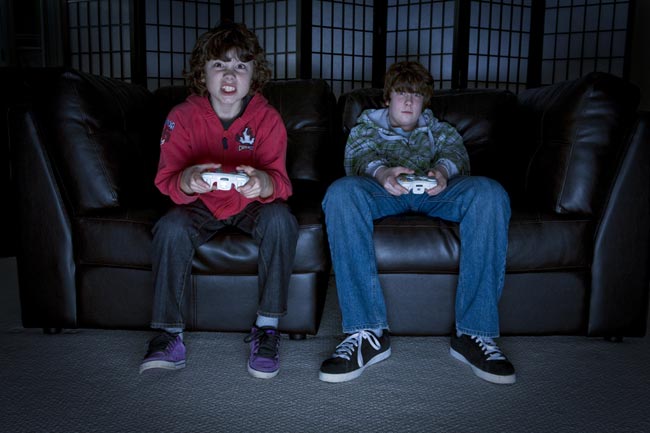Swearing On TV Linked to Teen Aggression

Get the world’s most fascinating discoveries delivered straight to your inbox.
You are now subscribed
Your newsletter sign-up was successful
Want to add more newsletters?

Delivered Daily
Daily Newsletter
Sign up for the latest discoveries, groundbreaking research and fascinating breakthroughs that impact you and the wider world direct to your inbox.

Once a week
Life's Little Mysteries
Feed your curiosity with an exclusive mystery every week, solved with science and delivered direct to your inbox before it's seen anywhere else.

Once a week
How It Works
Sign up to our free science & technology newsletter for your weekly fix of fascinating articles, quick quizzes, amazing images, and more

Delivered daily
Space.com Newsletter
Breaking space news, the latest updates on rocket launches, skywatching events and more!

Once a month
Watch This Space
Sign up to our monthly entertainment newsletter to keep up with all our coverage of the latest sci-fi and space movies, tv shows, games and books.

Once a week
Night Sky This Week
Discover this week's must-see night sky events, moon phases, and stunning astrophotos. Sign up for our skywatching newsletter and explore the universe with us!
Join the club
Get full access to premium articles, exclusive features and a growing list of member rewards.
Swearing on television during prime time will most likely get a show fined by the Federal Communication Commission, and new research suggests it might be for good reasons.
By studying Midwestern youths, the study found that the more profanity they are exposed to through television and video games, the more accepting they are of swearing and the more likely they are to use profanity themselves. Those kids who swore more were also more likely to engage in physical aggression.
"Profanity is kind of like a stepping stone," said study researcher Sarah Coyne, of Brigham Young University. "You don't go to a movie, hear a bad word, and then go shoot somebody. But when youth both hear and then try profanity out for themselves it can start a downward slide toward more aggressive behavior."
Measuring the profane
Coyne and colleagues polled 266 middle-school students in the Midwest to find out the amount of exposure they had to profane and violent TV and video games, as well as the students' own attitudes and behaviors about profanity and aggression toward others.
The researchers found links between the amount of swearing in video games and television and how often the students used profanity themselves; participants who used more swear language were more likely than other students to exhibit physical and relational violence. However, because the study is correlational it can only show that swearing on TV is indirectly linked to aggression, not whether one causes the other.
"On the whole, it's a moderate effect," said Coyne. "We even ran the statistical model the opposite way to test if the violent kids used more profanity and then sought it out in the media, but the first path we took was a much better statistical fit even when we tried other explanations."
Get the world’s most fascinating discoveries delivered straight to your inbox.
There are some caveats to the study. First, they only relied on the student's self-reports of media and swearing, and self-reports are notoriously variable. Secondly, they only looked at video games and television; they didn't look at other sources of profanity, including music and profanity use in the home. Many video games also have a social component, where users can talk to each other. This talk is often profanity laden, and uncontrolled, the researchers noted.
Positive profanity?
"The authors assume that words 'harm' children, and they need to be 'protected' from words. This is an assumption without basis, though widely held by conservatives and many social scientists," Timothy Jay, a researcher who wasn't involved in the study from Massachusetts college of Liberal Arts, told LiveScience in an email. "There is no evidence that words on TV cause people harm."
What the researchers don't note, however, are the positive effects of media and yes, even swearing, Jay said.
"There is a literature that shows the prosocial effects of media on children, the authors ignore these reports," Jay said. "The authors make no case for profanity being beneficial, as in humor elicitation, or social bonding, or as a coping mechanism, or as a relief from pain."
The study was published Sunday (Oct. 17) in the journal Pediatrics.
You can follow LiveScience staff writer Jennifer Welsh on Twitter @microbelover. Follow LiveScience for the latest in science news and discoveries on Twitter @livescience and on Facebook.
Jennifer Welsh is a Connecticut-based science writer and editor and a regular contributor to Live Science. She also has several years of bench work in cancer research and anti-viral drug discovery under her belt. She has previously written for Science News, VerywellHealth, The Scientist, Discover Magazine, WIRED Science, and Business Insider.
 Live Science Plus
Live Science Plus











